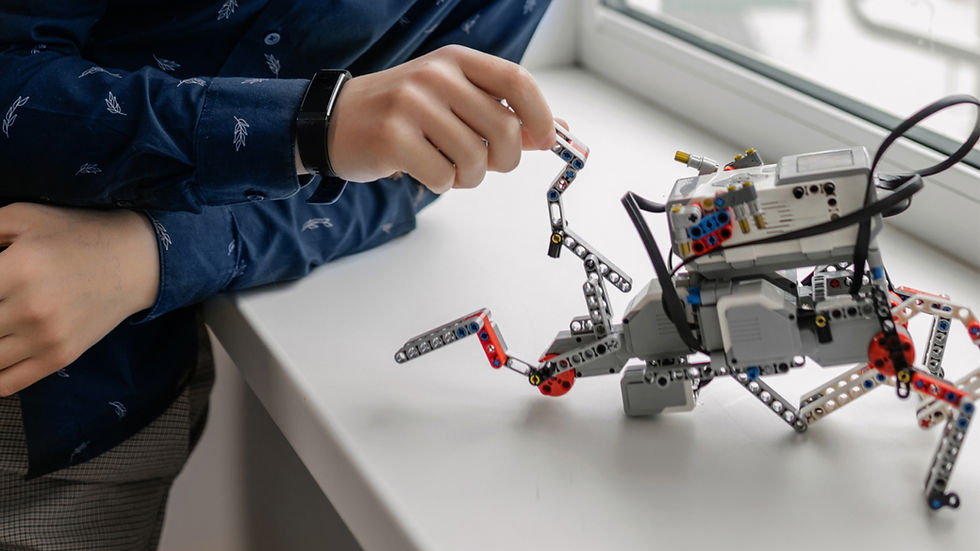The Impact of Robotics on Problem-Solving Skills in Kids
- Pranil Kanderi
- Nov 24, 2023
- 2 min read
Updated: Jan 25, 2024
Introduction: In today's rapidly advancing world, problem-solving skills are becoming increasingly important. As technology continues to evolve, the ability to think critically and find innovative solutions to complex problems is highly valued. That's why organizations like Overdrive Robotics are playing a crucial role in introducing robotics to kids at an early age. By engaging in robotics activities, children not only have fun but also develop essential problem-solving skills that will benefit them throughout their lives. 1. Encouraging Creativity: Robotics allows children to think outside the box and come up with creative solutions to challenges. When building and programming robots, they are given the freedom to experiment, make mistakes, and learn from them. This process fosters creativity and encourages kids to explore different possibilities, ultimately enhancing their problem-solving skills. 2. Developing Critical Thinking: Robotics requires students to analyze problems, break them down into smaller components, and find logical solutions. They learn to identify patterns, make connections, and think critically to overcome obstacles. This analytical thinking helps develop their problem-solving abilities, enabling them to approach challenges with a systematic and logical mindset. 3. Collaboration and Teamwork: Working on robotics projects often involves teamwork and collaboration. Students learn to communicate effectively, share ideas, and work together towards a common goal. By collaborating with their peers, they gain valuable insights and perspectives, broadening their problem-solving capabilities. They also learn the importance of listening to others, compromising, and finding consensus – all essential skills for solving problems in any field. 4. Persistence and Resilience: Building and programming robots can be challenging, and students often encounter setbacks along the way. However, these setbacks provide valuable opportunities for growth. Through robotics, children learn the importance of persistence and resilience. They understand that failure is a part of the learning process and that perseverance is key to overcoming obstacles. This mindset not only helps them in robotics but also prepares them for future challenges they may face. 5. Real-World Applications: Robotics introduces kids to real-world applications of STEM (Science, Technology, Engineering, and Mathematics) concepts. By engaging in hands-on activities, they see how these concepts are applied in practical situations. This connection to the real world enhances their problem-solving skills by allowing them to apply their knowledge to real-life scenarios. Conclusion: The impact of robotics on problem-solving skills in kids cannot be overstated. Through robotics, children develop creativity, critical thinking, collaboration, persistence, and resilience – all essential skills for success in the 21st century. Organizations like Overdrive Robotics are playing a vital role in introducing robotics to young students, empowering them to become problem solvers and innovators of the future. So, if you're looking for a fun and educational activity for your child, consider exploring the world of robotics and watch their problem-solving skills soar!



